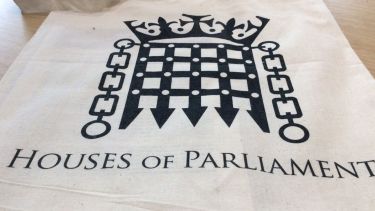The workshop was led by Dr Sarah Foxen, Social Science Adviser, Parliamentary Office of Science and Technology (POST); Danielle Nash, Second Clerk, Justice Select Committee; and Caitriona Fleming, Engagement and Communications Manager for the House of Commons. Each informed attendees as to the structure of Parliament and the government; the role of select, public and petition committees and how to influence them; how to access parliamentary libraries; POST (Parliamentary Office of Science and Technology); and directly contacting ministers and their advisors.
Workshop leaders offered answers to critical questions such as: who are the gatekeepers? How and when should I engage with Parliament? Are their particular fruitful times to engage with Parliament? How can working with Parliament relate to the REF? Interestingly, in the 6000 impact case studies included the 2014 REF, only 20% mentioned Parliament, even though 88% of universities engaged with Parliament, from across 36 different subject areas. Pertinently, academics and researchers in the room were advised to build a relationship with Parliament at the beginning of, and throughout the lifecycle of a project, rather than leaving it to the end.
Attending was important to the impact agenda for , the co-produced arts-informed research project led by Professor Dan Goodley, Runswick-Cole and Liddiard, School of Education and iHuman, that is exploring the lives, hopes, desires and contributions of disabled young people with life-limiting and life-threatening impairments.
If you’re interested in learning more about how you can influence Parliament, take a look at the resources below:
:
:
Contact parliamentary libraries:
House of Lords and House of Commons libraries provide specialist impartial information and a briefing service for MPs, peers, staff, committees and staff of Houses. Available online at under ‘research publications’.
Or contact the libraries directly at papers@parliament.uk
Take a look at on Twitter for tweets from the workshop.


